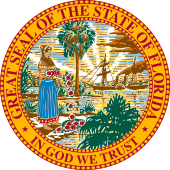
The rights of lesbian, gay, bisexual, and transgender (LGBT) people in the U.S. state of Utah have significantly evolved in the 21st century. Protective laws have become increasingly enacted since 2014, despite the state's reputation as socially conservative and highly religious. Same-sex marriage has been legal since the state's ban was ruled unconstitutional by federal courts in 2014. In addition, statewide anti-discrimination laws now cover sexual orientation and gender identity in employment and housing, and the use of conversion therapy on minors is prohibited. In spite of this, there are still a few differences between the treatment of LGBT people and the rest of the population, and the rights of transgender youth are restricted.

Lesbian, gay, bisexual, transgender and queer (LGBTQ) people face difficulties in prison such as increased vulnerability to sexual assault, other kinds of violence, and trouble accessing necessary medical care. While much of the available data on LGBTQ inmates comes from the United States, Amnesty International maintains records of known incidents internationally in which LGBTQ prisoners and those perceived to be lesbian, gay, bisexual or transgender have suffered torture, ill-treatment and violence at the hands of fellow inmates as well as prison officials.
In the United States, the rights of transgender people vary considerably by jurisdiction. In recent decades, there has been an expansion of federal, state, and local laws and rulings to protect transgender Americans; however, many rights remain unprotected, and some rights are being eroded. Since 2020, there has been a national movement by conservative/right-wing politicians and organizations to target transgender rights. There has been a steady increase in the number of anti-transgender bills introduced each year, especially in Republican-led states.
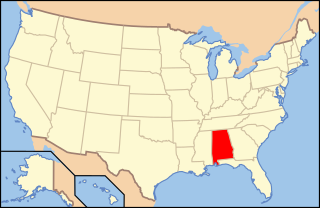
Lesbian, gay, bisexual, and transgender (LGBT) individuals in the U.S. state of Alabama have federal protections, but still face legal challenges and discrimination on the state level that is not experienced by non-LGBT residents. LGBT rights in Alabama—a Republican Party stronghold located in both the Deep South and greater Bible Belt—are severely limited in comparison to other states. As one of the most socially conservative states in the U.S., Alabama is one of the only two states along with neighboring Mississippi where opposition to same-sex marriage outnumbers support.

Lesbian, gay, bisexual, and transgender (LGBT) people in the U.S. state of Florida have federal protections, but many face legal difficulties on the state level that are not experienced by non-LGBT residents. Same-sex sexual activity became legal in the state after the U.S. Supreme Court's decision in Lawrence v. Texas on June 26, 2003, although the state legislature has not repealed its sodomy law. Same-sex marriage has been legal in the state since January 6, 2015. Discrimination on account of sexual orientation and gender identity in employment, housing and public accommodations is outlawed following the U.S. Supreme Court's ruling in Bostock v. Clayton County. In addition, several cities and counties, comprising about 55 percent of Florida's population, have enacted anti-discrimination ordinances. These include Jacksonville, Miami, Tampa, Orlando, St. Petersburg, Tallahassee and West Palm Beach, among others. Conversion therapy is also banned in a number of cities in the state, mainly in Palm Beach County and the Miami metropolitan area. In September 2023, Lake Worth Beach, Florida became an official "LGBT sanctuary city" to protect and defend LGBT rights.

Lesbian, gay, bisexual, and transgender (LGBT) people in Texas have some protections in state law but may face legal and social challenges not faced by others. Same-sex sexual activity was decriminalized in Texas in 2003 by the Lawrence v. Texas ruling. On June 26, 2015, the Supreme Court of the United States ruled bans on same-sex marriage to be unconstitutional in Obergefell v. Hodges.
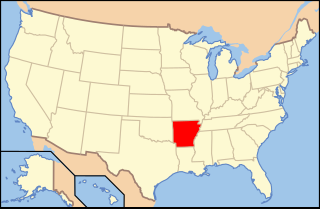
Lesbian, gay, bisexual, and transgender (LGBT) persons in the U.S. state of Arkansas may face some legal challenges not experienced by non-LGBT residents. Same-sex sexual activity is legal in Arkansas. Same-sex marriage became briefly legal through a court ruling on May 9, 2014, subject to court stays and appeals. In June 2015, the U.S. Supreme Court ruled in Obergefell v. Hodges that laws banning same-sex marriage are unconstitutional, legalizing same-sex marriage in the United States nationwide including in Arkansas. Nonetheless, discrimination on the basis of sexual orientation and gender identity was not banned in Arkansas until the Supreme Court banned it nationwide in Bostock v. Clayton County in 2020.
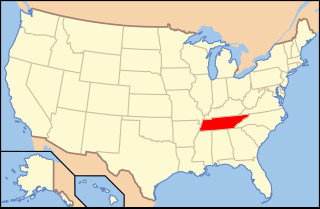
Lesbian, gay, bisexual, and transgender (LGBT) Tennesseans face some legal challenges that non-LGBT Tennesseans do not. Same-sex sexual activity is legal in the state. Marriage licenses have been issued to same-sex couples in Tennessee since the Supreme Court ruling in Obergefell v. Hodges on June 26, 2015.

Lesbian, gay, bisexual, and transgender (LGBT) persons in the U.S. commonwealth of Kentucky still face some legal challenges not experienced by other people. Same-sex sexual activity is legal in Kentucky, although the state legislature has not repealed its sodomy statute for same-sex couples. Same sex-marriage is legal in the Kentucky under the U.S. Supreme Court ruling in Obergefell v. Hodges. The decision, which struck down Kentucky's statutory and constitutional bans on same-sex marriages, and all other same sex marriage bans elsewhere in the country, was handed down on June 26, 2015.
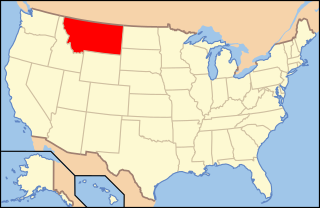
Lesbian, gay, bisexual, and transgender (LGBT) persons in the U.S. state of Montana may face some legal challenges not experienced by non-LGBT residents. Same-sex sexual activity has been legal in Montana since 1997. Same-sex couples and families headed by same-sex couples are eligible for all of the protections available to opposite-sex married couples, as same-sex marriage has been recognized since November 2014. State statutes do not address discrimination on the basis of sexual orientation and gender identity; however, the U.S. Supreme Court's ruling in Bostock v. Clayton County established that employment discrimination against LGBT people is illegal under federal law. A number of cities also provide protections in housing and public accommodations.
Transgender disenfranchisement is the prevention by bureaucratic, institutional and social barriers, of transgender individuals from voting or participating in other aspects of civic life. Transgender people may be disenfranchised if the sex indicated on their identification documents does not match their gender presentation, and they may be unable to update necessary identity documents because some governments require individuals to undergo sex reassignment surgery first, which many cannot afford, are not medical candidates for, or do not want.
Detransition is the cessation or reversal of a transgender identification or of gender transition, temporarily or permanently, through social, legal, and/or medical means. The term is distinct from the concept of 'regret', and the decision may be based on a shift in gender identity, or other reasons, such as health concerns, social pressure, or discrimination and stigma.
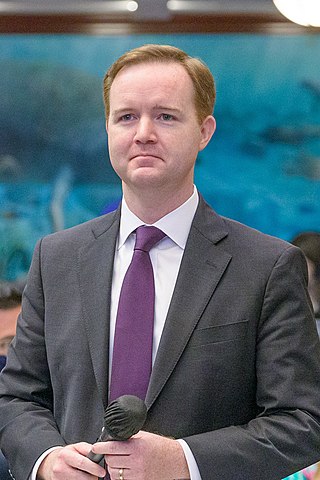
Clay Yarborough is an American politician who has served in the Florida Senate from the 4th district since 2022. He previously served in the Florida House of Representatives from the 12th district from 2016 to 2022, and on the Jacksonville City Council from the 1st district from 2007 to 2015.

Erin Grall is an American politician who has served in the Florida House of Representatives from the 54th district from 2016 to 2022 and Florida Senate since 2022. Grall has played an active role in the Florida Legislature, sponsoring a significant number of bills that have become law in recent years.

Arkansas House Bill 1570, also known as the Save Adolescents From Experimentation (SAFE) Act or Act 626, is a 2021 law in the state of Arkansas that bans gender-affirming medical procedures for transgender people under 18, including puberty blockers, hormone therapy, and sex reassignment surgery. The law also bans the use of public funds for and prohibits insurance from covering gender transition procedures, while doctors who provide treatment in violation of the ban can be sued for damages or professionally sanctioned. The measure makes Arkansas the first U.S. state to make gender-affirming medical care illegal.

Transphobia in the United States has changed over time. Understanding and acceptance of transgender people have both decreased and increased during the last few decades depending on the details of the issues which have been facing the public. Various governmental bodies in the United States have enacted anti-transgender legislation. Social issues in the United States also reveal a level of transphobia. Because of transphobia, transgender people in the U.S. face increased levels of violence and intimidation. Cisgender people can also be affected by transphobia.

The Society For Evidence-Based Gender Medicine (SEGM) is a non-profit organization that is known for its opposition to gender-affirming care for transgender youth and for engaging in political lobbying. The group routinely cites the unproven proposal of rapid-onset gender dysphoria and has falsely claimed that conversion therapy techniques are only practiced on the basis of sexual orientation rather than gender identity. SEGM is often cited in anti-transgender legislation and court cases, sometimes providing evidence briefs themselves. It is not officially recognized as a scientific organization by the international medical community.
Quentin Van Meter is a pediatric endocrinologist and president of the American College of Pediatricians, a socially conservative advocacy group which is known for opposing gay marriage, gender reassignment surgery, and abortion. He has advocated and referred his clients to conversion therapy and is known for rejecting the medical consensus on the efficacy and safety of transgender health care.
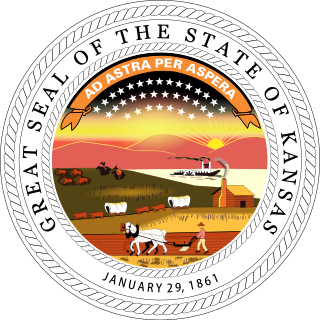
Kansas SB 180 or the Kansas Women's Bill of Rights is a bill that bans any identification of a gender other than the gender assigned at birth in the US state of Kansas. Kansas governor Laura Kelly vetoed the bill in April 2023. On April 26th and 27th, the Kansas Senate and House of Representatives voted to override the veto, making the bill law.
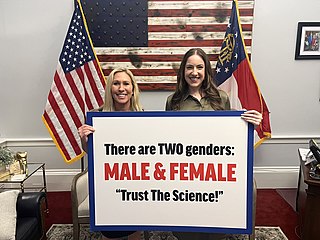
The 2020s anti-LGBT movement in the United States is an ongoing political backlash from social conservatives against LGBT people. It has included legislative proposals of bathroom use restrictions, bans on gender-affirming care, anti-LGBT curriculum laws, laws against drag performances, book bans, boycotts, and conspiracy theories around grooming. Between 2018 and 2023, hundreds of anti-LGBT laws were considered, with more than one hundred passed into law.
